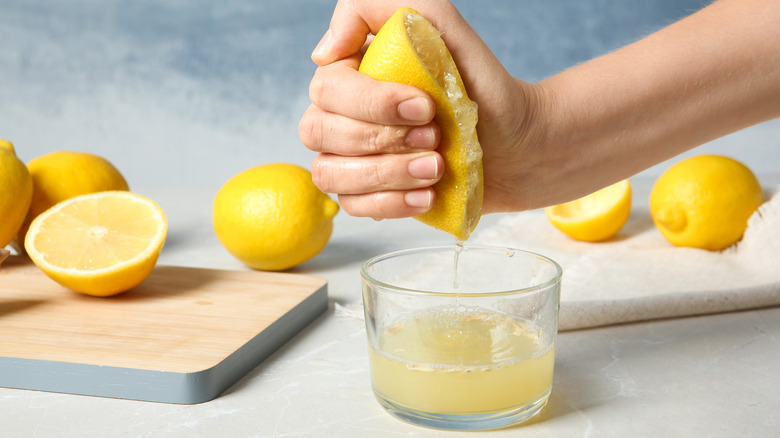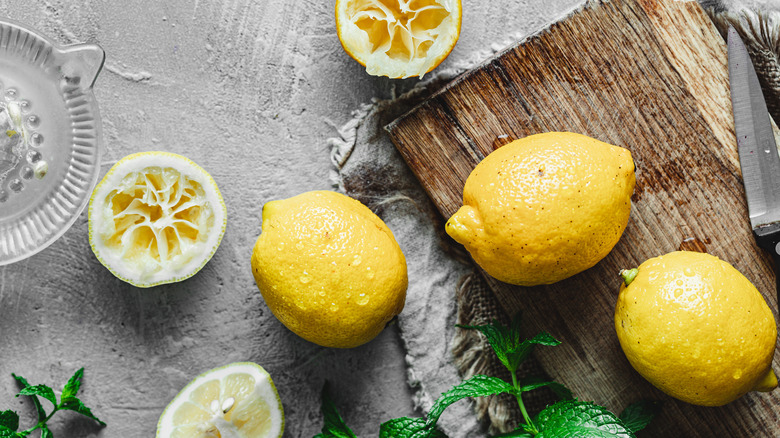How To Soften And Juice A Hard Lemon
Fresh lemon is one of the most useful and versatile ingredients in any kitchen. A quick squeeze of juice or a sprinkling of zest can brighten a wide variety of dishes, from fish and chicken to salads, cakes, and cocktails. But what if your hard-working lemon is just plain hard? Extracting juice from a very firm fruit can be challenging, but there are tricks and tips that can help.
Softening the fruit is key to extracting more juice, and several methods can accomplish this. It's most difficult to juice lemons that are cold, so the primary step is to warm the fruit, loosening the skin and increasing juice yield. If your lemons are either fridge-cold or at room temperature, one method is to place them in a small or medium-sized bowl of warm water and let them sit for about 30 to 40 minutes before juicing.
An even faster way to heat the lemons is in a pot of water on the stove. The water should be warm to the touch but not hot and definitely not boiling. Allow the lemons to sit in the warm water for a few minutes, until the skin feels warm to the touch. For the quickest method, you can use a microwave, which takes just a few seconds.
Use the freezer then the microwave for maximum lemon juice
It may seem unusual to microwave lemons, but it's a quick and effective way to soften the fruit's tough membranes, ensuring you get more juice. The fruit should be whole rather than cut, as cutting could dry out the flesh. Microwave the lemon for 10 to 20 seconds, depending on whether it was at room temperature or came from the fridge. Just make sure the lemon is cool enough to touch before you cut it and begin juicing.
For even better results, if you have more time, consider freezing whole lemons before you heat them. This approach is especially useful if you plan to juice a whole batch of lemons. Freezing not only allows you to store the fruit for longer if you're not ready to use them immediately, but also helps you extract more juice later. Allow the frozen lemons to thaw for about four to eight hours until they reach room temperature, and then microwave them. The frozen juice expands, so you'll get more liquid when the lemons are warmed and juiced.
Roll your lemon, then cut it lengthwise
To get the best results when juicing lemons, it's worth it to roll the fruit on a hard surface like a cutting board before slicing it. Rolling the fruit back and forth under the palm of your hand for about 40 seconds helps break down the tough membranes, yielding even more juice. If your lemon is particularly hard, you could use a rolling pin to apply a bit more pressure, but be careful not to break the fruit's skin.
We often don't give much thought to how we cut a lemon in half, but slicing it lengthwise rather than widthwise can make a difference when it comes to juicing. Cutting the lemon this way provides a larger surface area for juicing and exposes more of the internal membrane, resulting in a juicier yield. This method not only maximizes the amount of juice you get from a lemon, but also makes the juicing process easier. Easy peasy, lemon squeezy.



